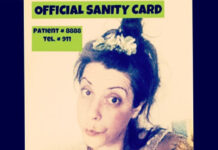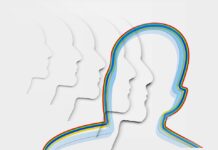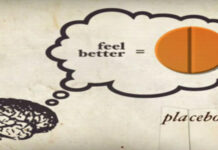No Psychiatrist Needs to Use ECT
Modern psychiatrists are taught that all mental disorder is biological in nature. As a result, they aren't taught psychotherapy, and when they get a complicated patient, they don't know what to do. Thus, they very quickly reach the limit of their skill set and have no option but to reach for the electrodes.
Unanswered Questions in New Mental Health Screening Program for Children
An article presents new screening tools for pediatric depression and anxiety—but fails to answer its own questions about efficacy.
Schizophrenia Deconstructed
After a few weeks it became clear to me the complete lack of comprehension that I faced as a person claiming to have been cured of psychosis. Being a schizophrenic claiming to no longer suffer from schizophrenia only made me seem more schizophrenic due to the current culture of psychiatry.
Psychological Research Fails to Capture Human Diversity, Researchers Call for Action
Data demonstrate an overreliance of non-representative and non-diverse sampling biases in psychological research.
Do Psychiatrists Harm their Patients out of Stupidity?
I think it is fair to say that many psychiatrists display an enormous lack of good sense and judgment. Psychiatrists are in the firm grip of a collective force field of an almost fundamentalist belief system that blinds them to the harm they unwittingly do and the human rights abuses they commit.
French and American Approaches to “ADHD”
It now looks as if the U.S. approach to mental health is fast gaining purchase in a country that formerly boasted a great, perhaps too sophisticated (Lacan et al.) psychoanalytic tradition, but also a holistic psychosocial tradition when dealing with psychological disturbance in children.
Data Shows That Nutrients Reduce Aggression: Why is Policy Not Changing?
Despite study after study after study showing that there is a simple, cheap solution to reducing aggression in many people, the message hasn’t carried through to changing policies or treatment approaches. If a drug were shown to reduce aggression with no side effects, would it be ignored?
Robert Whitaker Refutes Jeffrey Lieberman; But Is Psychiatry Reformable?
When the neuroleptics-are-necessary-to-treat-schizophrenia myth falls, psychiatry is finished. And that is why the Goff et al paper was produced: a desperate attempt to maintain its position by a profession that is truly on the ropes. For psychiatry this is a death-struggle.
Study Explores Correlates of Low-Level Physical Activity and Psychosis
A study examines the variables correlated with low levels of physical activity in persons diagnosed with psychosis in low and middle-income countries
An Open Letter to the President’s Commission on Combating Addiction and the Opioid Crisis
The Commission was addressed by organizations engaged with various aspects of addiction treatment. Much of the input seemed apropos, but one voice was missing. Speakers failed to include even one practicing physician or advocate for the pain patients who have been blamed for the so-called “opioid epidemic.”
MIA RADIO: Expanding the Audience for “Critical Psychiatry” Perspectives
We are now launching a new effort, one that has us excited about its possibilities. MIA Radio will begin airing podcasts on July 1. We will be both producing our own MIA podcasts and serving as a host for independently produced critical psychiatry podcasts.
Barriers to Engaging in Self-Help CBT for Voice Hearing
Individuals with lived experience and clinicians share about barriers and facilitators to guided self-help CBT for voice hearing.
Aggregate vs. Anecdote for Med Lovers
The vast majority of the data shows that people who benefit from psychiatric drugs are statistical outliers. You got lucky. We're glad you got lucky. But your story is not the whole story. Public policy decisions shouldn't be based on "the lucky ones," they should take into account all aggregate data.
Researchers Question the Utility of an ADHD Diagnosis
A new article examines the usefulness of the ADHD diagnosis and suggests alternatives
How Helpers Empathize may Affect Their Personal Well-being
Researchers distinguish between two different forms of perspective taking and examine their impact on helpers’ wellbeing.
INTAR India 2016: Reflections
Despite everyone's best intentions, the river of psychopharmacy was making its path through the global south, with no stops anywhere within policy or practice. INTAR India 2016 became very important for the global south against this rising tide and the overmedicalization of people's psychosocial distress and disabilities.
Healing from Psychiatry: A Community Art Book
I began reaching out to other psychiatric survivors, asking whether they would like to have their art featured in a book, and the response I received was amazing. People openly shared not only their art but their personal stories, their feelings, and their painful journeys into, through, and out of psychiatry.
Study Investigates Physicians’ Beliefs About Placebo and Nocebo Effects of Antidepressants
Surveyed doctors overestimate pharmacological effects of antidepressants and underestimate placebo effects.
Antipsychiatry – Say What?
What exactly does “antipsychiatry” mean? Is the term useful or hopelessly ambiguous? Can one be antipsychiatry without being abolitionist? And if one wants to end the use of psychiatric coercion only, does that position qualify as antipsychiatry?
Breaking Through the Wall of Schizophrenia
A good relationship can begin to puncture a hole through the wall of disconnection. The goal is to help a person break out of the isolation and private world that trauma has created and re-engage with a public world—culturally, emotionally and in a way that has personal meaning.
The Next Generation of the Mad Movement in NYC Looks Like This
It’s a Saturday afternoon in mid-June and there’s about 150 of us on the ground floor of a low income housing building on the Lower East Side of Manhattan. The Institute for the Development of Human Arts is holding their founding event: “Making New Meaning: A School for Innovative Voices & Visions.”
New Data on the Adverse Effects of Meditation and Mindfulness
Study reports on the less-examined findings of difficult and painful meditation-related experiences.
The Political Abuse of Psychiatry in America – My Story
Imagine going to the airport to travel to London, only to find yourself locked in a high-security psychiatric ward a few hours later, paralyzed by psychoactive drugs and deprived of all your belongings. This happened to me, and you will be shocked to learn how easily it could happen to you.
Research Finds Ketamine Does Not Reduce Delirium or Pain After Surgery
Contrary to widely-held belief, a new rigorous trial finds that ketamine is ineffective for delirium and pain associated with surgery, and the drug carries harmful side effects.
‘Mad’ Psychologist Speaks Out
Yet again I find myself in the painful, ridiculous and uncomfortable position of having to try to do my best to repair the extensive damage which is being done to vulnerable survivors of child abuse by the system. Yet again I am powerless to do much about it.

































